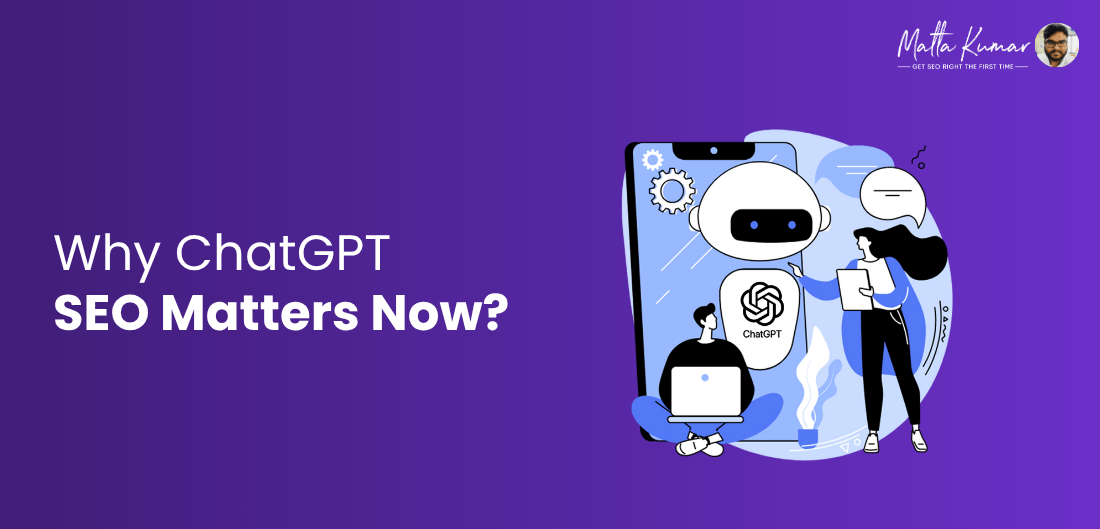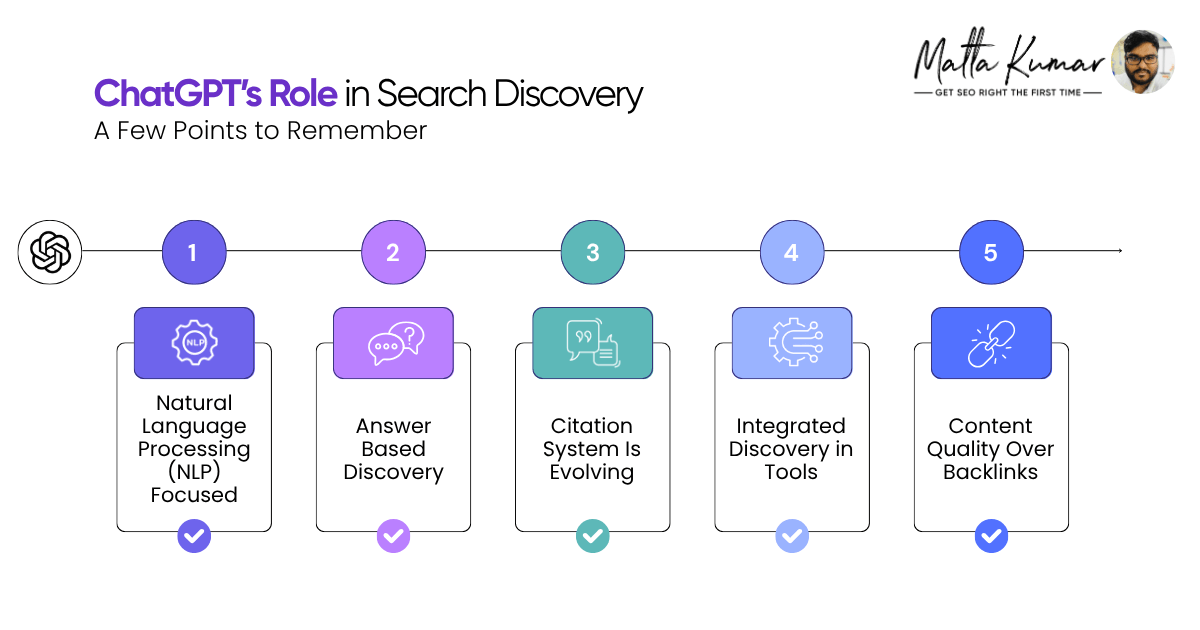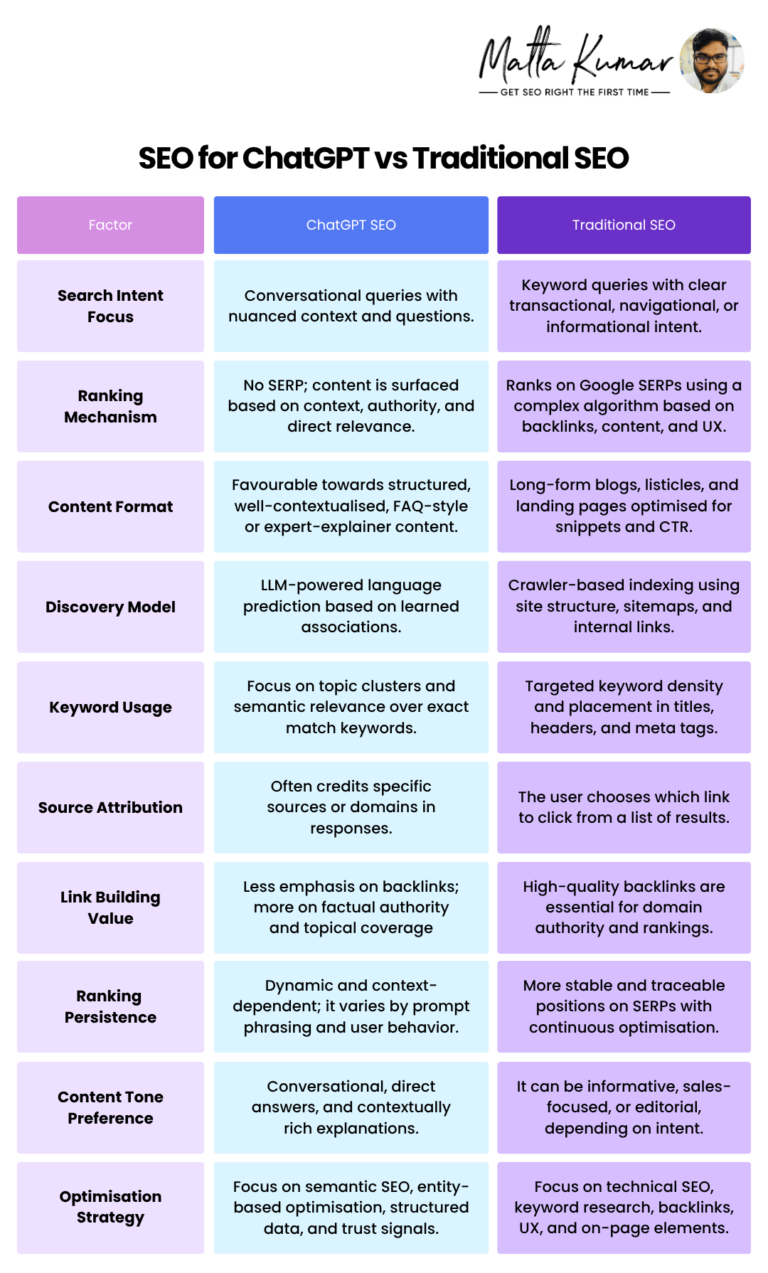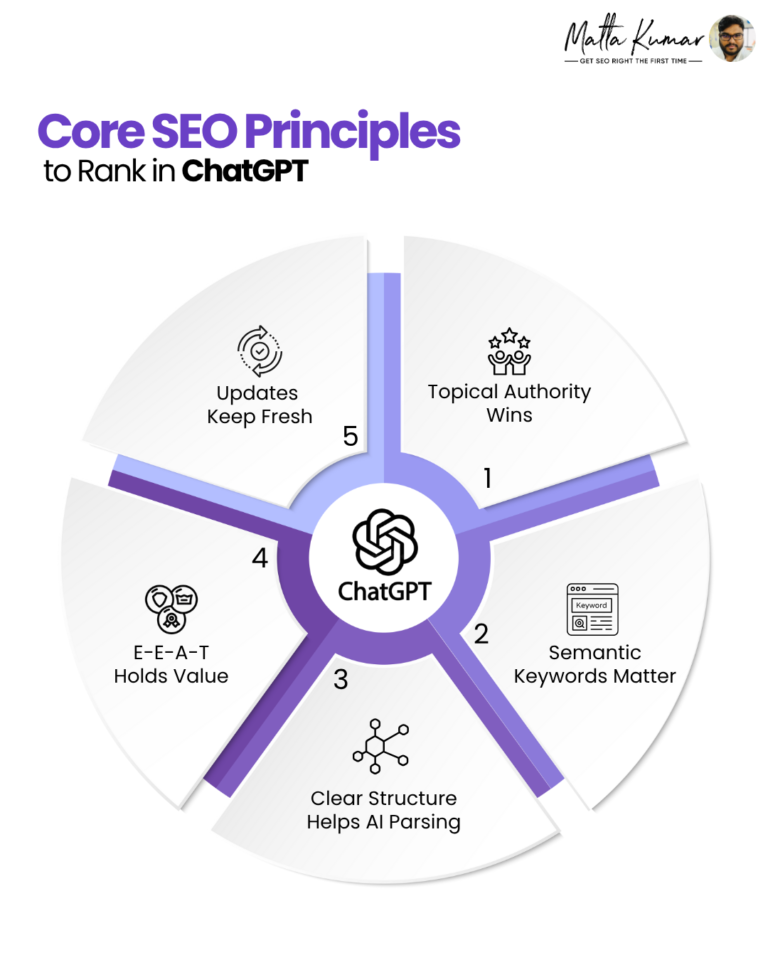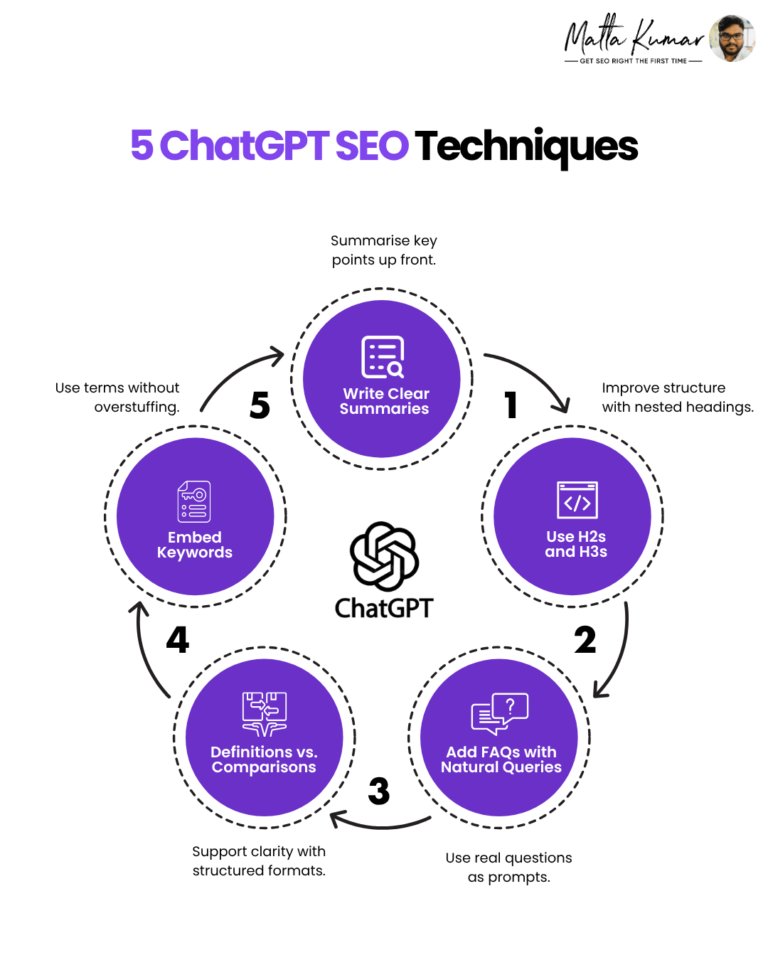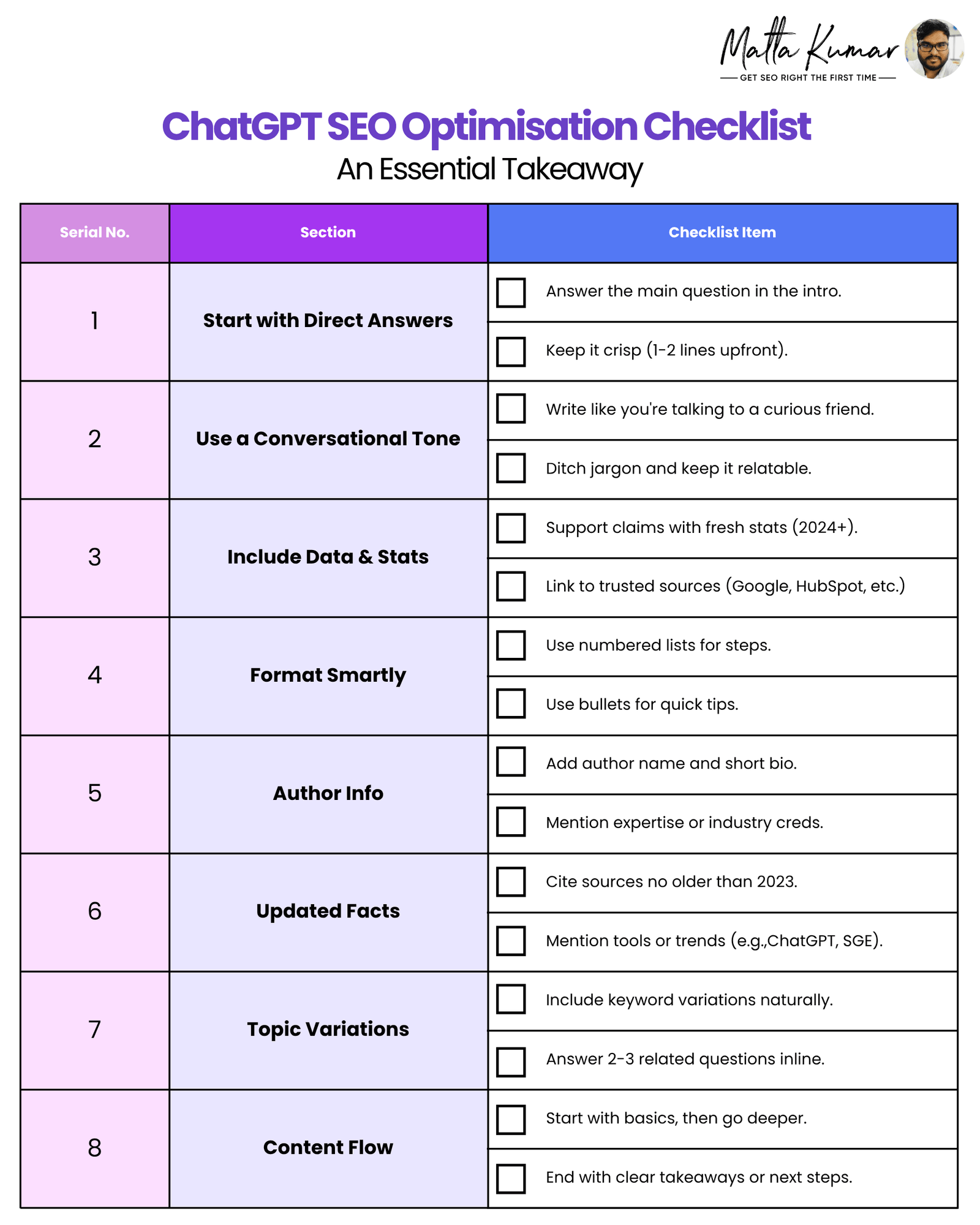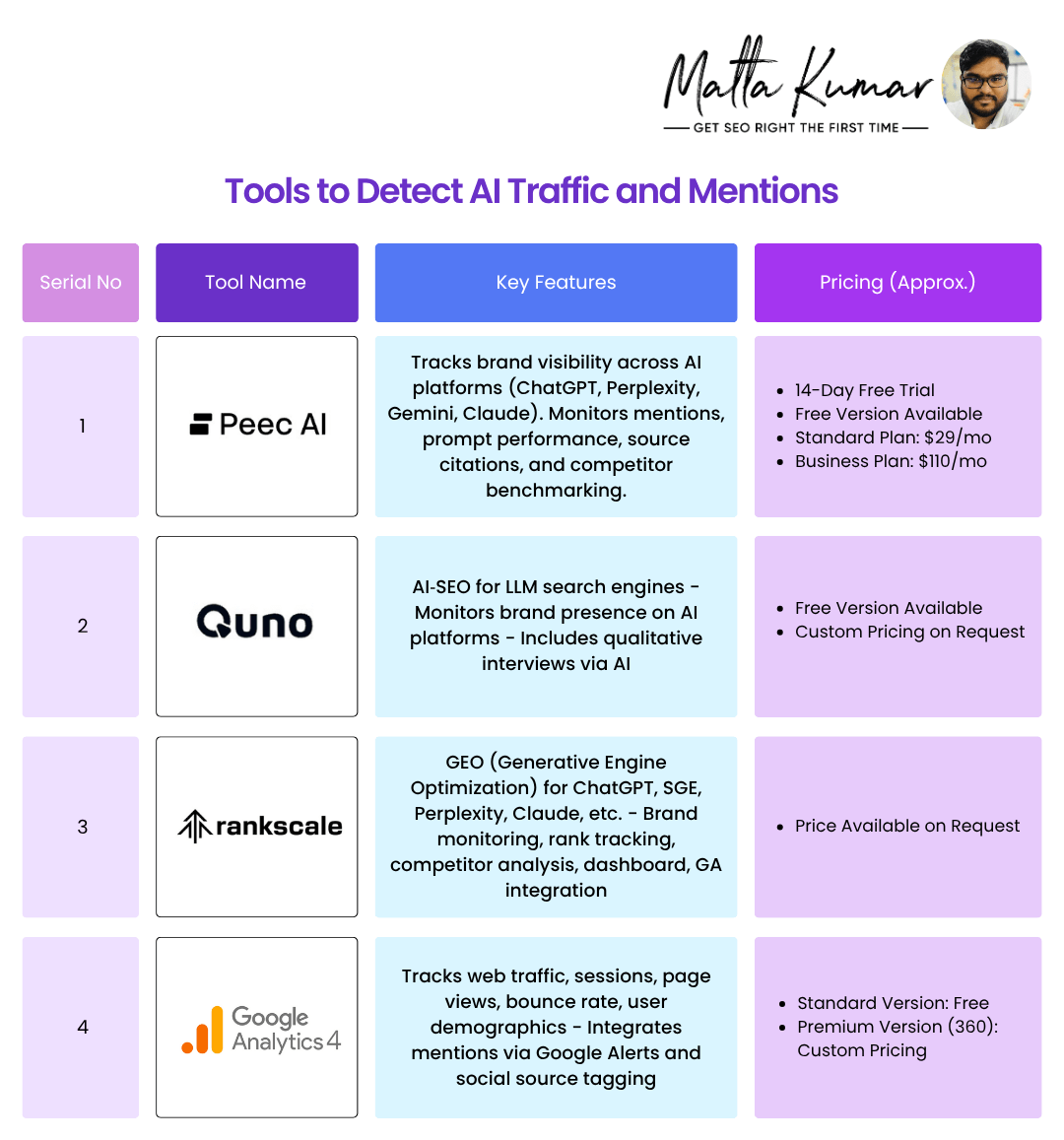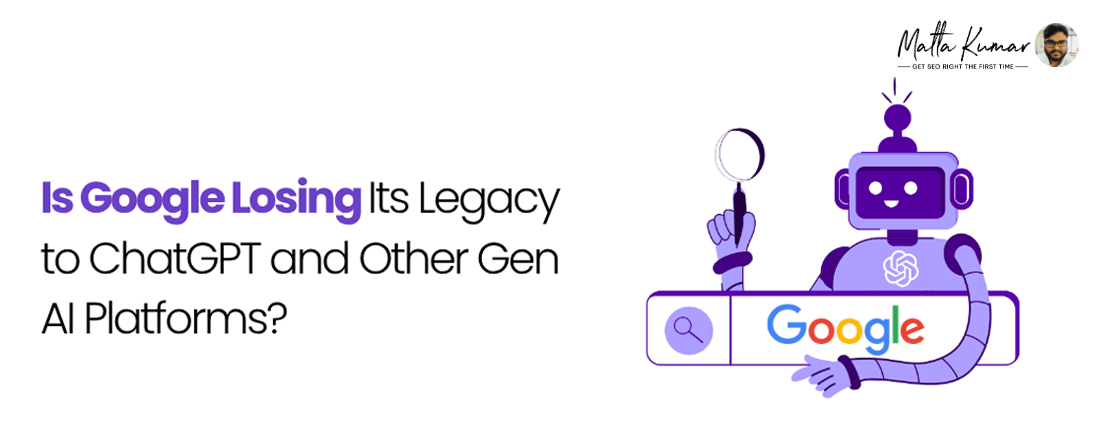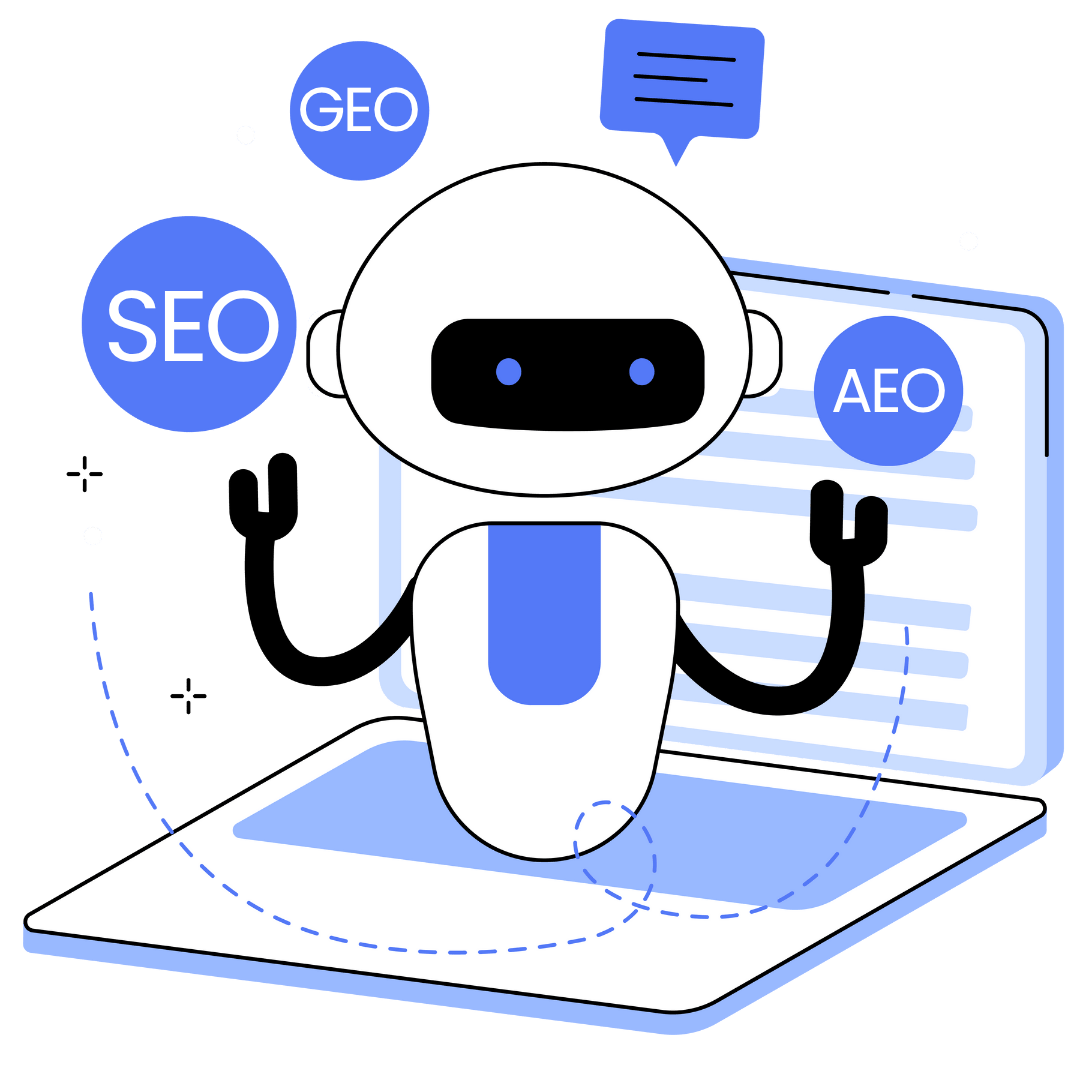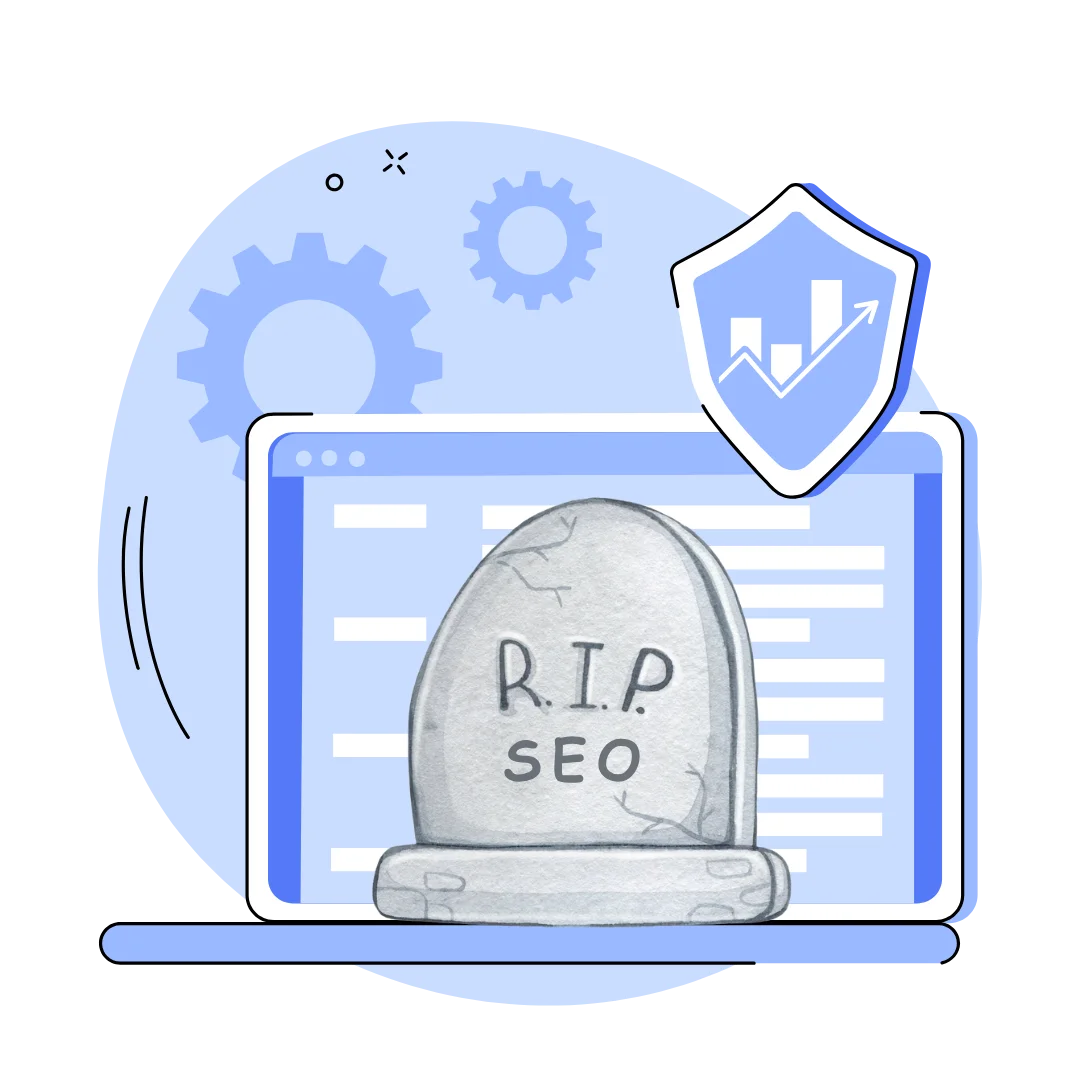TL; DR
Do you want to show up on ChatGPT search results? This guide breaks down how to optimise your content for LLM-powered search engines, like ChatGPT. From entity-rich writing and structured data to building topical authority and earning mentions, you’ll learn actionable strategies to rank higher, boost visibility, and drive qualified traffic from AI assistants like ChatGPT.
ChatGPT is an artificial intelligence chatbot. However, unlike its siblings, it can detect, identify, and engage in human-like conversations.
That was its initial capability.
Now, ChatGPT has crossed the threshold of a regular chatbot and evolved into a powerful search and discovery engine. Today, the LLM is integrated into browsers and apps to function as a major traffic source for content creators and brands alike.
Since ChatGPT is deemed a powerful search engine, optimisation of your content for the platform has become mandatory. Therefore, ChatGPT SEO is the need of the hour because the engine is attracting 37.5 million search-like prompts per day. Agreed that the number is lower compared to Google, Bing, Yahoo, and DuckDuckGo.
But ChatGPT-like generative search engines are the future of digital marketing. And they are fast catching up. Unarguably, traditional search engines, like Google, continue to remain a major growth channel, but LLMs provide 0.28% of total conversions from a mere 0.13% of total site traffic. That’s more than twice its share.
So, let’s not skip ChatGPT search optimisation in your next growth strategy and dive straight into it.
Why ChatGPT SEO Matters Now?
Numbers speak louder than words! And the above-mentioned statistics prove the importance of ChatGPT today.
Here, you will find more reasons to focus on ChatGPT SEO alongside your regular website optimisation for Google and other conventional search platforms.
1. A Shift in Users’ Search Behavior
Despite Google still ruling the search engine platform, a new trend of users shifting from Google-style search queries to conversational prompts is catching up. Therefore, optimising for ChatGPT SEO isn’t optional; it is essential. This change is reshaping how information is surfaced, consumed, and recommended.
2. Emerging Traffic Channel
ChatGPT is being used to answer queries directly and for primary research. Consequently, the reliance on traditional search is gradually declining.
3. Early Mover Advantage
In the digital marketing landscape, competition is at an all-time high. Generative search engines and LLMs are catching up with traditional search platforms. Now is the best time to optimise your website content for ChatGPT SEO to get a front-row seat for your brand and be the early catchers of potential users before the competition shows up.
4. Content Summarisation Priority
GPT tools summarise multiple sources and present information as summaries, similar to Google AI Overviews. A well-structured and clear website content architecture is key to success under the gen AI dominance.
5. Influences Purchase Decisions
Users trust ChatGPT’s recommendations more than ever. The chances of clicking on external links are less now compared to how users researched on traditional search engines.
6. Chat-First Discovery Trend
Voice and chat-based search discovery are becoming mainstream across devices. Here, optimisation for ChatGPT search can help your brand’s visibility, especially where your end users are.
Understanding ChatGPT’s Role in Search Discovery
ChatGPT functions differently. Where traditional search engines focus on ranking and listing web pages, ChatGPT understands and summarises content for contextually correct prompt responses.
There’s a shift from indexing to interpreting.
When you optimise for ChatGPT, you are actually aiming to become the “source of truth”. And these GPT models rely on, especially, for generating answers. Without credibility, structure, and clarity, featuring your website on AI answer summaries is not possible.
SEO for ChatGPT vs Traditional SEO
While Google rewards domain authority and backlinks, ChatGPT rewards precision, clarity, and coverage of topics in a conversational tone. The game has changed.
ChatGPT SEO isn’t about keyword stuffing or metadata tricks. It is more about optimising how your content is read, understood, and interpreted by an AI model trained on vast amounts of text. After all, Google rewards domain authority and backlinks while ChatGPT rewards precision, clarity, and coverage of topics in a conversational tone.
The rules of the search game have changed, and the differences are highlighted below:
Core Similarities You Should Still Apply
Generative search engines are not here to rival their conventional platforms. Therefore, search engine optimisation still retains its relevance.
In fact, SEO can easily pair with both ChatGPT and other LLMs just as it does with Google and other traditional engines. Because certain fundamentals still hold despite the evolution.
Good SEO remains about relevance, expertise, and clarity. These shared principles form the bridge between ranking in traditional search and optimising for ChatGPT outputs.
Key Differences to Adapt For!
Where ChatGPT differs is in how it interprets and selects content to answer prompts.
It is less about search engine signals and more about conversational relevance. You must tailor your SEO strategy to ensure content is discoverable, explainable, and summarised well for language models.
This is how you can do it:
- Prompt-Ready Language – Write content as if answering a direct user query.
- No Index-Based Ranking – Visibility depends on training data, not live indexing.
- Less Dependent on Links – GPT may not rely heavily on link structures.
- Prompt-Ready Language – Write content as if answering a direct user query.
- Structured FAQs Perform Better – GPT often pulls answers from well-organised Q&A sections.
- Content Summarisation Is Key – Brevity with context helps models extract better answers.
How to Rank in ChatGPT – Core Signals That Matter
To rank in ChatGPT-generated responses, your content must align with core signals like clarity, trust, and structured presentation. An essential point to remember here is that you are not just writing for users, you are also writing for an AI machine that interprets and mimics human reasoning.
A few optimisation signals for ChatGPT SEO are mentioned below that can increase your chances of being cited or used.
- Clear and Concise Language – Your website must have short, context-rich answers that outperform verbose paragraphs.
- Schema Markup and Structure – The content must help models identify and extract important points.
- Author Attribution and Source Trust – These elements boost your chance of being quoted or referenced.
- FAQs and Definitions – The FAQs primarily support ChatGPT’s natural Q&A style.
- Updated, Evergreen Content–Please remember that the generative AI engines favour accurate and current sources.
Five ChatGPT SEO Optimisation Techniques
The following techniques help large language models/LLMs, like ChatGPT and Gemini, to understand and surface your content effectively.
ChatGPT SEO Optimisation Checklist - An Essential Takeaway
This is your go-to checklist to ensure your website content is ready to rank in ChatGPT answers.
An Important Point to Remember – Each point mentioned in the checklist will boost the chances of your content being picked, summarised, or recommended by GPT models.
Important ChatGPT Content Optimisation Techniques
A proper content optimisation for LLM platforms, like ChatGPT, can make your website digestible, informative, and ready to be pulled into an AI-generated response. Additionally, you must give special attention to content formats that are natural and best-suited for ChatGPT’s retrieval and summarisation methods.
Using these formats increases the chance of your content being referenced or recommended. Also, the website content’s position within a page or section can influence whether GPT pulls it in. Highlighting key insights and positioning them strategically boosts your visibility. Your website’s main objective must be to provide answers in a tone and structure that feels natural to both the reader and the AI.
Here are a few essential takeaways for you:
1) Write for Reader + AI – Blend natural phrasing with keyword strategy.
2) Position Key Info Upfront – ChatGPT often reads only the first few sentences.
3) Create Summarisable Paragraphs – Each paragraph should stand alone.
4) Use Examples and Use Cases – Enhances clarity and relatability.
5) Break Down Complex Ideas Simply – GPT prefers plain, accessible language.
6) Content Formats that Perform Well –
a. FAQs and glossaries are ideal for quick lookup and citations.
b. Step-by-step guides like formats create a clear structure to aid easy extraction.
c. Comparisons and lists are mandatory because GPT thrives on structured data.
d. How-to articles are highly aligned with user prompts.
e. Explainers and use cases add context and depth.
7) Place FAQs Near Top or Mid-Content – GPT accesses FAQs easily when not buried.
8) Summarise Before Detailing – Lead with the “TL;DR” version.
9) Use Tables and Visual Breaks – For better readability by AI.
10) Highlight Actionable Steps – GPT likes extracting process-driven content.
11) Ensure Internal Linking Consistency – Supports thematic relevance.
Monitoring and Measuring ChatGPT SEO Impact
SEO ranking in ChatGPT is great, but how do you know it is even working? With proper tracking tools, you can affirm visibility in ChatGPT. This is now a vital part of your SEO analytics. While AI-driven traffic is harder to quantify, there are emerging ways to trace mentions, visibility, and indirect traffic from the LLM.
This is how you can measure your SEO strategy for ChatGPT:
- Look for Referral Trends– Traffic spikes with low referral data may hint at AI sourcing.
- Analyse Featured Snippets Loss/Gain– GPT might pull from previously ranked content.
- Track Brand Mentions in ChatGPT– Some tools now highlight when you are cited.
- Monitor ‘Zero Click’ Patterns – Signals AI-powered answers are replacing search.
- Engage in Prompt Testing–Manually check if GPT includes or summarises your brand.
Tools to Detect AI Traffic and Mentions
Future of ChatGPT SEO – What to Expect Next
Like other LLMs, ChatGPT is still in its infancy, and so is its SEO. There’s a lot about platform optimisation remaining undiscovered. This is mainly because the search algorithm is volatile, and AI technology is still expanding. Also, the user behavior is altering based on the new changes.
That said, ChatGPT and other LLMs are growing fast. As OpenAI refines its models, new SEO optimisation standards will emerge. And the future might be more about deeper integrations with Bing, Shopify, browsers, and even local discovery tools. They will definitely transform how content gets discovered.
A few such trends can be:
- Direct Integrations with Tools and Platforms
- Better Attribution Models for Content Creators
- GPT-Focused Analytics Dashboards
- Rise of AI-Favoured Content Networks
- Need for Real-Time Update Mechanisms
Is Google Losing Its Legacy to ChatGPT and Other Gen AI Platforms?
With the announcement of AI Overviews and AI Mode at Google I/O 2025, the internet’s relationship with Google Search has officially entered a new era. For the first time in decades, marketers, SEO professionals, and creators are actively exploring how to optimise for platforms other than Google. Such a transition is due to changes in click-through patterns, visibility metrics, and even the definition of a “search result.”
Tools like ChatGPT, Perplexity, and even Gemini in AI Mode now aggregate, personalise, and summarise information instead of sending users to a list of 10 blue links.
This shift has triggered an uncomfortable but necessary question: Is Google’s 25-year legacy in search facing a slow disruption? It’s too early to say Google is out of the game. However, what’s clear is that search is no longer synonymous with Google (and other search engines, like Bing and Yahoo).
Therefore, SEO strategies must now expand to include AI-driven discovery models like ChatGPT, where visibility equals citations, mentions, and retrieval consistency.
Key Takeaway: The future of ranking isn’t about beating algorithms. It’s about becoming indispensable to AI.
Conclusion
The era of ChatGPT search optimisation has begun. It is not about replacing traditional SEO, but enhancing it with new techniques that meet the moment.
By preparing your content for AI-first discovery, you unlock a new channel for brand visibility, traffic, and trust. Start now with ChatGPT SEO, refine your strategy often, and stay ahead of the curve.
FAQs
Q1: What is ChatGPT SEO?
ChatGPT SEO is the process of optimising content so it can be surfaced, summarised, or cited by ChatGPT in its AI-generated responses.
Q2: How is SEO for ChatGPT different from Google SEO?
ChatGPT SEO focuses on conversational relevance, structure, and clarity, less on backlinks or domain authority.
Q3: How do I rank in ChatGPT search?
Use structured content, natural language, clear headings, and include direct answers to frequently asked questions.
Q4: Which formats work best for ChatGPT?
FAQs, step-by-step guides, how-tos, and glossaries work well as they’re easy for GPT to summarise and cite.
Q5: Can I track traffic from ChatGPT?
While it’s tricky, tools like SparkToro, prompt testers, and referral traffic patterns can offer insights into GPT-driven visibility.


